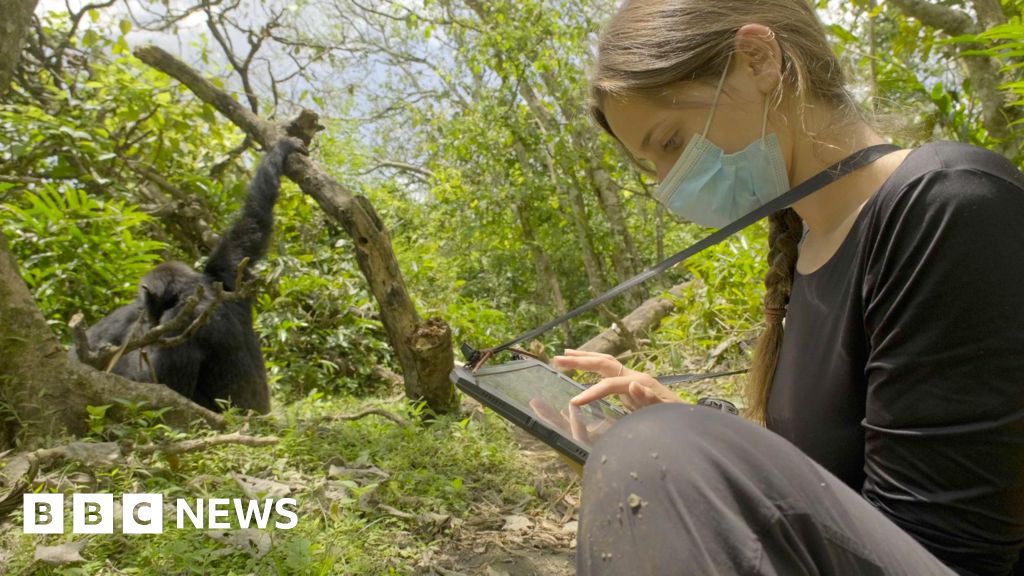Science correspondent, BBC News
Chimpanzees in Uganda have been observed using medicinal plants – in multiple ways – to treat open wounds and other injuries.
University of Oxford scientists, working with a local team in the Budongo Forest, filmed and recorded incidents of the animals using plants for first aid, both on themselves and occasionally on each other.
Their research builds on the discovery last year that chimps seek out and eat certain plants to self-medicate.
The scientists also compiled decades of scientific observations to create a catalogue of the different ways in which chimpanzees use “forest first aid”.
Researchers say the study, which is published in the journal Frontiers in Ecology and Evolution, adds to a growing body of evidence that primates, including chimps, orangutans and gorillas, use natural medicines in a number of ways to stay healthy in the wild.
Lead researcher Elodie Freymann explained there was “a whole behavioural repertoire that chimpanzees use when they’re sick or injured in the wild – to treat themselves and to maintain hygiene”.
“Some of these include the use of plants that can be found here,” she explained. “The chimpanzees dab them on their wounds or chew the plants up, and then apply the chewed material to the open injury.”
The researchers studied footage of a very young, female chimpanzee chewing plant material and applying it to an injury on its mother’s body.
They also found records of chimpanzees tending to the wounds of other animals they weren’t related to. This is particularly exciting, explained Dr Freymann, “because it adds to the evidence that wild chimpanzees have the capacity for empathy”.
Some of the hundreds of written observations that Dr Freymann and her colleagues studied came from a log book at the field station in the forest site, which is northwest of the capital, Kampala.
This record of anecdotal evidence dates back to the 1990s – local field staff, researchers and visitors have written in, describing any interesting behaviour they have observed.
There are stories in that book of leaf-dabbing on injuries and chimps helping other chimps to remove snares from their limbs.
There are some surprisingly human-like hygiene habits: One note describes a chimpanzee using leaves to wipe itself after defecating.
This team of researchers has previously identified some of the plants that chimpanzees sought out and ate when they were injured. The scientists took samples of those plants, tested them and discovered most had antibacterial properties.
Chimpanzees are not the only non-human apes with apparent knowledge of plant-based medicine. A recent study showed a wild oranguatan using chewed leaf material to heal a facial wound.
Scientists think studying this wild ape behaviour – and understanding more about the plants the chimps use when they are sick or injured – could help in the search for new medicines.
“The more we learn about chimpanzee behaviour and intelligence, the more I think we come to understand how little we as humans actually know about the natural world,” Dr Freymann told BBC News.
“If I were plopped down here in this forest with no food and no medicine, I doubt that I’d be able to survive very long, especially if I were injured or sick.”
“But chimpanzees thrive here because they know how to access the secrets of this place, and how to find all they need to survive from their surroundings.”
Other News: 255.Best
Source link:BBC


 فارسی
فارسی